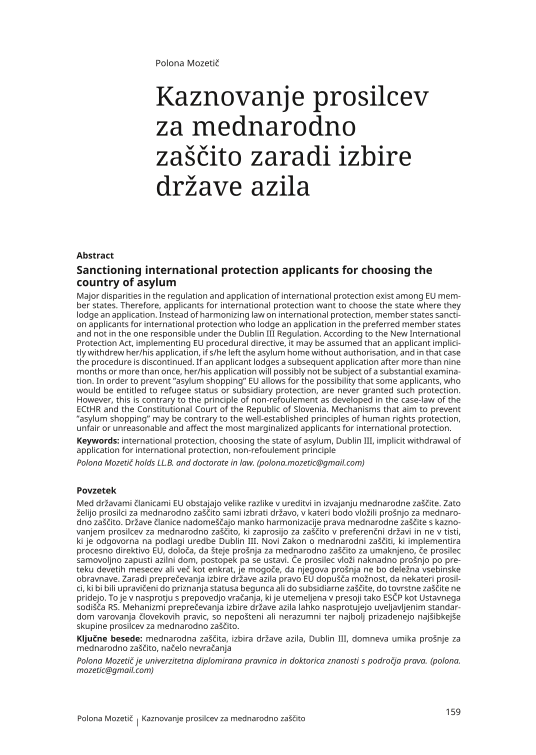Major disparities in the regulation and application of international protection exist among EU member states. Therefore, applicants for international protection want to choose the state where they lodge an application. Instead of harmonizing law on international protection, member states sanction applicants for international protection who lodge an application in the preferred member states and not in the one responsible under the Dublin III Regulation. According to the New International Protection Act, implementing EU procedural directive, it may be assumed that an applicant implicitly withdrew her/his application, if s/he left the asylum home without authorisation, and in that case the procedure is discontinued. If an applicant lodges a subsequent application after more than nine months or more than once, her/his application will possibly not be subject of a substantial examination. In order to prevent ”asylum shopping” EU allows for the possibility that some applicants, who would be entitled to refugee status or subsidiary protection, are never granted such protection. However, this is contrary to the principle of non-refoulement as developed in the case-law of the ECtHR and the Constitutional Court of the Republic of Slovenia. Mechanisms that aim to prevent ”asylum shopping” may be contrary to the well-established principles of human rights protection, unfair or unreasonable and affect the most marginalized applicants for international protection.




